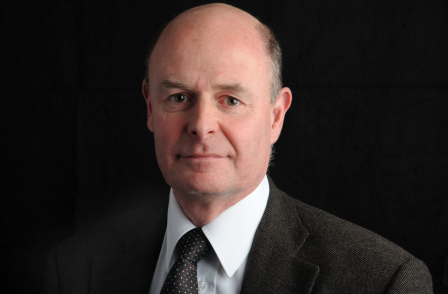
Torin Douglas leaves the BBC after 24 years as media correspondent next month and he told Press Gazette that he leaves the corporation at a time when morale is low.
Douglas cited job cuts under the Delivering Quality First scheme and the Pollard Review, which “exposed real weaknesses”, as factors in making BBC staff “unhappy”.
“The fact is, morale within the BBC is not good – particularly with the strikes and everything,” said Douglas, who has taken voluntary redundancy under the DQF scheme.
“A lot of BBC staff are unhappy about the pay of their managers, the way the BBC is managed and so on.”
Douglas is leaving the corporation on 31 May this year. He is not retiring and will continue to speak at events and to write.
He said: “I’m not giving up work but I’m getting off the treadmill because in this job you are on call all the time if a big enough story breaks – they have no qualms about calling you and getting you on the air. So it will be nice, after 24 years, to get off that.”
Talking about the challenge of covering his own employer, he said: “The BBC was always going to be a major part of the story. We’ve had phone-hacking, we’ve had Leveson, so obviously the press stuff has come back in to centre stage – in a way as it was when I started in 1990.
“But the BBC is the one that keeps coming back, and it’s all about the BBC crises… There is always something to say about the BBC – partly because it’s publicly funded, but also because rival media have economic interest in the BBC being damaged.”
Admitting that it was difficult for the BBC to "break" stories about itself, he said: "I don't mean we never break stories about the BBC – obviously we’ve done a lot over the years – but it’s not easy to break unconfirmed allegations…It sounds odd if you say, ‘the BBC has learnt that the BBC is going to do this’, or that ‘the BBC has done that’.
“Once a story is moving then it is perfectly possible for the BBC to broadcast certain things about itself. But I wouldn’t look to the BBC for a big exposé about the BBC.”
Asked whether the corporation covers its own affairs too much, Douglas said: “I do think there is a danger that the media are more interested in the media than the public at large.
“It’s a difficult balance. If you don’t cover stories that are critical about yourself you could be accused of a cover-up – particularly if it’s being heavily covered in the newspapers.
“But on the other hand you could say that you are obsessed with your own affairs.
“Sometimes I think the BBC does give too much coverage to itself but I don’t think you’ll ever find the BBC covering its own affairs more than the newspapers are covering the BBC’s affairs.”
Email pged@pressgazette.co.uk to point out mistakes, provide story tips or send in a letter for publication on our "Letters Page" blog

